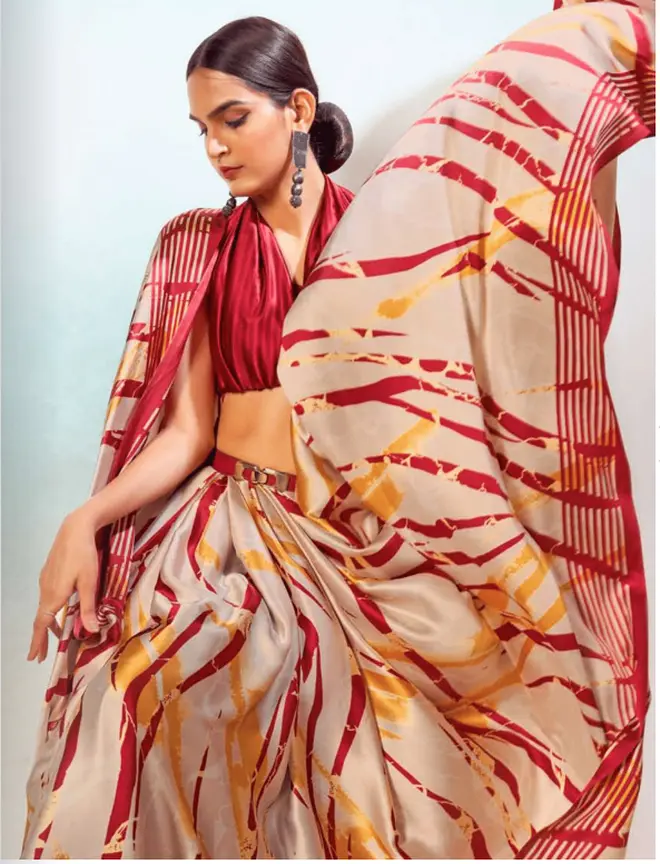It is the season for comebacks. A spate of brands that had faded away are suddenly getting a new lease of life, picked up by new owners. Reliance is resurrecting Campa Cola; MCPI, a part of The Chatterjee Group, is bringing back saree brand Garden Vareli, and Bird Mobility is partnering with the Italian retro scooter brand Lambretta to revive it in a re-incarnated form.
There is no denying that these brands pack great nostalgic value but is sentiment alone enough to craft a revival? Are these brands relevant today and will they hit a chord with the younger generation? who will be unfamiliar with them?
Veteran marketer Sandip Ghose is fairly cynical. “I believe a lot of these purchases are for vanity reasons,” he says, adding that in a volume game, buyers lose interest in them quickly – either leaving them to languish or die. “What has Pepsi done with Dukes?” he queries.
As to the product’s relevance, especially a cola, which today may be hit by health concerns, Ghose feels that new products (like Aam Panna) in old categories may work better. Or, he suggests reviving heritage brands as per modern day needs like HUL has done with hair-oil brand Indulekha.
Build vs Acquire
But in today’s digital day and age when it is easy to build a new brand at a much lower cost, why is it necessary to acquire an old brand which may come with some attendant baggage and cost more?
Vigyan Verma, Founder of The Bottom Line, a brand consulting company, says that nostalgia brands have an ecosystem of mavens to talk about them, who will create a perfect storm by sharing their own lived experiences with them. “This gives a head-start buzz in a cluttered space. The younger audience is mostly non-plussed about the hullaballoo around these brands,” he says.
But, he also says relevance of buying these brands depends a lot on category. “A cola is a youthful product, so youth lead in decision making, and needs no adult anchor. Therefore, a nostalgia brand may be less relevant for colas. For a saree brand making a comeback, a nostalgia value may still be relevant if the senior generation (mothers mostly) have positive things to say about it, since a lot of young women may still seek their mother’s opinion regarding a traditional garment like a saree.”
Sandeep Goyal, Managing Director, Rediffusion, the agency which has won the mandate to re-ignite Garden Vareli, (incidentally it handled the brand back in its heyday), says, “Nostalgia has many dimensions. We always think only of customer memory of brands. Retail and trade memory is equally precious. With brands like Garden, you have to understand that there is a huge reservoir of trade nostalgia and the belief that the brand was an unparalleled powerhouse. They still remember its cutting-edge designs and its market moving might.

From Garden Vareli’s collection
Recreating retail strength
Says Goyal, “In the relaunch of any brand, recreating its retail strength is actually more important than rebuilding customer goodwill. It is here that the accumulated nostalgia works more than anything else.”
Goyal says that the initial spadework that Rediffusion has done shows tremendous potential for Garden. On the other hand, he points that Campa Cola was launched in India when there was no Coca Cola or Pepsi around. “Now they own the market. Hence the new market scenario will be vastly different from 40 years ago.”
But Vigyan Verma says that carbonated soft drinks are still a huge category in India, with the cola segment itself at an estimated 1.8 billion litres in 2022, in spite of increasing health awareness and a shift towards non-carbonated drinks, and packaged juices. “Obviously, a sizeable business opportunity exists. Campa Cola, as an Indian cola brand, with the expected financial might of Reliance behind it, can change the balance of a current two-pronged corporate race, with or without infusion of nationalist sentiments prevailing in the country,” he says.
And despite the saree market changing now — handloom brands such as Taneira making their presence felt now — he feels the Garden Vareli acquisition makes sense. “Garden Vareli has been acquired by a manufacturing company which does not have any obvious brand building credentials. Raising the profile of the company and access to manufacturing units could be the reasons behind the acquisition. The product market fit question may not have been looked at seriously in this case. To still be of serious consequence in the largely unorganised saree space, it has to pick a relevant need gap and offer a solution, say ready-to-wear sarees since most young women wear sarees only occasionally and may find draping sarees themselves challenging. This will need to be augmented up with ‘ahead-of-the-curve’ digital audio-visual communication, if Garden Vareli has to live up to its rich legacy built in the ’80s.”







Comments
Comments have to be in English, and in full sentences. They cannot be abusive or personal. Please abide by our community guidelines for posting your comments.
We have migrated to a new commenting platform. If you are already a registered user of TheHindu Businessline and logged in, you may continue to engage with our articles. If you do not have an account please register and login to post comments. Users can access their older comments by logging into their accounts on Vuukle.